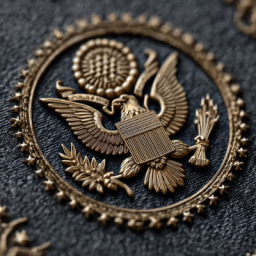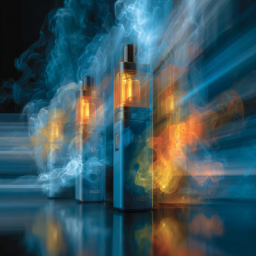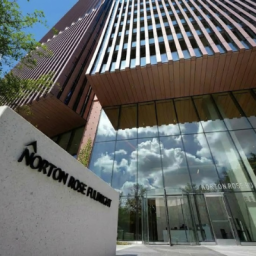
WIPO’s Pulse survey shows a clear global trend: awareness and trust in intellectual property (IP) rights are climbing across nearly every region. For brands, innovators, and consumers, this shift signals real changes in how people identify, value, and engage with original products and creative works. At Juris Law Group, we help companies understand how these evolving perceptions affect brand protection, consumer expectations, and competitive strategy.
Why Is Global Intellectual Property Awareness Surging in 2025?
Awareness of patents, trademarks, copyrights, designs and geographical indications is rising because consumers encounter IP concepts daily through digital marketplaces, branded products, creative platforms and discussions about innovation. According to WIPO’s 2023 Pulse survey, the global average awareness index was: Copyright ~38 %, Trademarks ~30 %, Geographical Indications ~30 %, Patents ~24 %, and Designs ~20 %.
Regionally the differences were significant: for instance, awareness of patents in Eastern European states was ~39 %, versus only ~21 % in Asia-Pacific states. IP isn’t a niche legal concept anymore; it’s becoming part of everyday consumer and business language.
How Does Greater IP Understanding Strengthen Brand Value?
When consumers understand what IP protects, they place higher value on originality, authenticity, and brand legitimacy. For example, WIPO found that more than 66% of respondents across all regions recognize that IP rights positively impact their economy (Asia-Pacific ~76%, Africa ~70%, Latin America/Caribbean ~67%).
This level of recognition means that trademarks, patents, and designs aren’t just legal safeguards; they are signals of quality, reliability, and innovation. For brands that invest in protection and communicate it clearly, the competitive advantage is real.
What Does Increased Trust in IP-Protected Products Mean for Consumers?
Consumers, particularly in Latin America, Africa and Asia-Pacific, associate IP-protected goods with higher quality, safety and reliability. WIPO reports that across several IP right categories, attributes like “ensures fair income for creators” and “trustworthiness” ranked among the top two in consumer perception.
As trust rises, so does willingness to choose branded, protected goods rather than unregulated or counterfeit alternatives. For consumers, IP-protection becomes a meaningful marker of authenticity and value.

How Are Creators and Innovators Benefiting from a More IP-Literate Public?
A more educated marketplace understands the value of creative and technical work, making it easier for innovators to monetize their IP. WIPO’s survey found that awareness among youth (ages 18-24) is significantly lower: e.g., only ~32% understand copyright and ~18% understand patents. This highlights an opportunity: as awareness grows, creators have a more receptive audience and better conditions for licensing, royalty agreements, and commercialization.
For startups, designers, artists and engineers, this means a more supportive environment where IP rights translate into business value.
In What Ways Should Companies Adapt Their IP and Marketing Strategies?
As IP becomes more visible to consumers, companies should integrate it into their branding strategies. This means emphasizing patent-backed innovation, trademark authenticity, product design originality, and geographic origin without legal jargon. WIPO data show that brands which can signal those protections to consumers may enjoy enhanced trust and market differentiation.
Also: tailor messaging to regions where IP trust is growing fastest (Latin America, Africa, Asia-Pacific) and reinforce the value of authenticity, innovation and creator support.
What Opportunities Does the IP Awareness Boom Create for Global Brands?
The rise in awareness opens doors for stronger brand differentiation, more effective enforcement, and expanded cross-border licensing opportunities. With consumers more attuned to what IP protection stands for, companies that proactively protect and communicate their IP rights can convert legal safeguards into marketing and business advantages.
At Juris Law Group, we guide clients in turning their IP portfolios into strategic brand assets, not just registers of rights, but tools for growth and differentiation.
Frequently Asked questions (FAQ)
Does higher IP awareness reduce counterfeiting?
It doesn’t eliminate it, but it significantly lowers consumer tolerance for counterfeit goods and strengthens brand protection efforts.
What’s the biggest benefit for brands?
Increased trust. Consumers who understand IP view protected products as more authentic, reliable and valuable.
How can companies communicate IP value without legal jargon?
Focus on outcomes: innovation, safety, authenticity, quality and support for creators, rather than technical IP terminology.
Which regions show the strongest trust in IP?
Regions like Latin America, Africa and Asia-Pacific report some of the highest positive perceptions of IP’s role in economies (~67 %-76 %). WIPO+1
How does Juris Law Group support companies using these insights?
We help clients protect their IP rights globally, craft clear and consumer-friendly IP-oriented branding messages, and align their legal strategy with market perceptions to maximize business impact.
Key Takeaway
Rising global awareness and trust in IP are fundamentally changing how consumers choose products and how brands communicate value. Businesses that integrate IP into their brand story, protect their innovations early, and tailor messaging for this more IP-literate audience will be best positioned to thrive.














